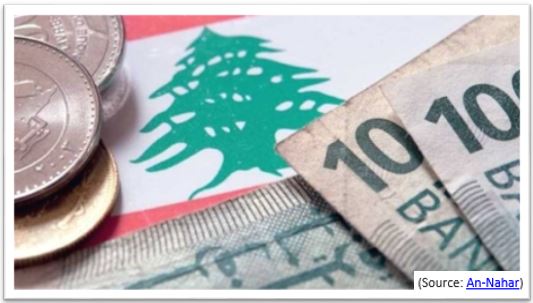
Climate finance, as referred to by the United Nations Framework Convention on Climate Change (UNFCCC), is a myriad of local, national or transnational financing intended to support climate mitigation and/or adaptation actions. It can be drawn from public, private or alternative sources of financing, and can be provided bilaterally or through multilateral funding organizations in the form of development aid, private equity, loans, or concessional finance to developing countries. The UNFCCC’s financial mechanism is entrusted to the Global Environment Facility (GEF), the Special Climate Change Fund (SCCF) and the Least Developed Countries Fund (LDCF) (both managed by the GEF), the Adaptation Fund (AF) and the Green Climate Fund (GCF), with the first and the last being by far the largest in terms of funding resources. Established in 1992, the GEF helps developing countries to meet the objectives of the international environmental conventions. It has provided over USD5.7 billion in grants and mobilized USD45.3 billion for more than 1,000 climate change mitigation and 330 adaptation projects in 160 countries. The GCF, established by the UNFCCC in 2010, channels climate finance to developing countries, to meet the adaptation and mitigation goals of the Paris Agreement. It has so far committed USD5.6 billion to 129 approved projects to date (April 2020). These supports fall within global efforts in mobilizing large-scale investments at a global level, estimated at USD280 billion and USD500 billion per year by 2050 (UNEP).
Climate Finance in Lebanon
In Lebanon, key international donors for climate change projects include the GEF, the EU, UNFCCC, World Bank, and EBRD among others. Financial support has been received in the form of grants, loans (including concessional ones), green bonds and credit lines.
GEF Funds to Lebanon:
Lebanon received a total of USD 269,435,749 from the
GEF Trust Fund to support 51 environmental projects since 1995, out of which 12 are national climate change projects, amounting to USD 8,181,600 in the form of grants as follows:
|
Project
|
GEF Grant (USD)
|
Co-Financing (USD)
|
National Implementing Institution
|
Approval Fiscal Year
|
|
Establishing Lebanon’s Transparency Framework
|
990,000
(concept approval stage)
|
632,000
|
MoE
|
2018
|
|
Second Biennial Update Report
|
352,000
|
50,000
|
MoE
|
2016
|
|
Lebanon's First Biennial Update Reporting
|
320,000
|
20,0000
|
MoE
|
2013
|
|
Small Decentralized Renewable Energy Power Generation
|
1,450,000
|
11,616,000
|
MoEW
|
2012
|
|
Second Technology Needs Assessment
|
120,000
|
0
|
MoE
|
2011
|
|
Second National Communication
|
305,000
|
20,000 Cash
80,000 In-kind
|
MoE
|
2006
|
|
Climate Change Enabling Activity (Additional Financing for Capacity Building in Priority Areas)
|
100,000
|
0
|
MoE /CDR
|
2001
|
|
Barrier Removal for Cross Sectoral Energy Efficiency
|
3,400,000
|
2,000,000
|
MoEW/EDL
|
1999
|
|
Building Capacity for GHG Inventory and Action Plans in Response to UNFCCC Communications Obligations
|
292,600
|
35,000
|
MoE
|
1996
|
Lebanon also benefited from 27 regional/global projects under GEF, one of which was specifically dedicated to climate-change in 2000: The “Capacity Building for the Adoption and Application of Energy Codes for Buildings” project for Lebanon and Palestine (USD195,000 allocated to the Lebanese component, in addition to USD510,000 for shared components).
As for the SCCF managed by GEF, it has contributed USD7,147,635 for the Smart Adaptation of Forest Landscapes in Mountain Areas (
SALMA) project by the Food and Agriculture Organization. GEF also supported the Climate Smart Agriculture (AgriCAL) project, with a budget of USD9,282,720 via the AF.
GCF Funds to Lebanon:
The Green Climate Fund’s current contribution (USD 828,159) to Lebanon serves the Readiness Project with the South Centre operating as the Delivery Partner.
Other Funding Sources:
Support in the form of grants has also been channeled from OECD countries to Lebanon for policy formulation, institutional support and education and awareness in the fields of forestry, energy, water supply and sanitation, which are directly and indirectly related to climate change.
The
Lebanon Trust Fund (LRF) funded in 2013-2015 the
National Action Programme to Mainstream Climate Change into Lebanon’s Development Agenda (USD500,000), to improve climate change governance and coordinate climate change initiatives.
The
Low Emission Capacity Building Project (LECB) implemented by the MoE received support from European Commission, the Australian Government and the German Federal Government amounting to USD1,103,000. to develop a greenhouse gas emission national inventory system, Nationally Appropriate Mitigation Actions (NAMAs), and the establishment of a Measurement, Reporting and Verification (MRV) system and was completed in 2018.
Lebanon’s
Nationally Determined Contribution Support Programme (NDCSP) with USD887,500 to improve the assessment, achievement and reporting of the country's NDC submitted in 2015.
For funding on sectoral projects, please refer to Chapter IV of
Lebanon’s Third Biennial Update Report.
While these funded projects provide an overview of climate flows in Lebanon, further efforts need to be deployed to optimize climate finance mobilization, tracking and coordination. Identifying the country’s needs, finding innovative ways to mobilize funds, and coordinating priorities with donors remain essential pillars to attracting climate finance in Lebanon. This must also be accompanied by unified climate finance criteria across all sectors to homogenize tracking methods and inform future endeavors in this area.
Related publications:
- Biennial Update Report (BUR) III;
- ClimaSouth Project Report: Lebanon – Formulating an MRV framework for support received.
Related links:
- LCEC:
Blending LEEREFF and NEEREA Financing
- The South Centre:
An Update on the Green Climate Fund
- The South Centre:
Climate Finance Readiness
-
Nationally Determined Contribution Support Programme